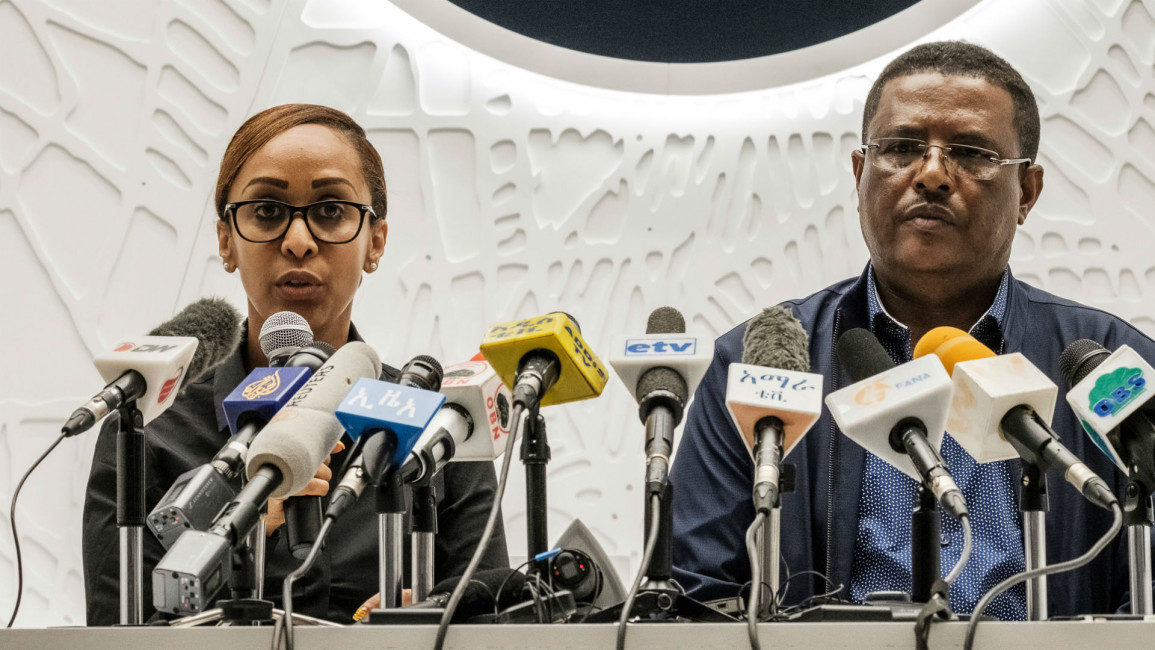Ethiopia army chief, local leader killed in 'attempted coup'
The latest unrest in the Horn of Africa nation flared on Saturday afternoon in Amhara, one of nine autonomous regions, when a "hit squad" attacked a meeting of top officials, Abiy's office said on Sunday.
Spokeswoman Billene Seyoum told journalists the Amhara "coup attempt" was led by local security chief Asaminew Tsige, and resulted in state president Ambachew Mekonnen and another top official being shot.
The men were "gravely injured in the attack and later died of their wounds," she said.
"Several hours later in what seems like a co-ordinated attack, the chief of the staff of the national security forces Seare Mekonnen was killed in his home by his bodyguard" in the capital, she added.
Seare and a visiting retired general were shot dead in his home in the posh Bole district of Addis Ababa, home to diplomats, aid workers and expats.
The bodyguard has been apprehended while Asaminew is still on the loose, sources said.
The link between the two attacks and their motives were not immediately clear.
The internet has been cut nationwide since Saturday evening, after being severed for much of the previous week.
A journalist in the regional capital Bahir Dar told AFP shooting had begun shortly after sunset and continued for several hours before ceasing. On Sunday he described the city as a "ghost town".
The United States embassy issued alerts about reported gunfire in the capital Addis Ababa, and violence around Amhara's main city Bahir Dar.
Observers say that Abiy's plans to hold an election in 2020 has stirred up resentment in local politics, with other regional parties contesting the hold of those within the EPRDF, and seen a rise in ethno-nationalism.
At the same time, longstanding tensions in a country of more than 80 ethnic groups have burst into the open, often over land and resources in Africa's second most-populous nation.
Over a million people have been displaced by ethnic clashes, which analysts attribute to multiple causes, such as the weakening of the once all-powerful ruling EPRDF and different groups trying to take advantage of opportunities presented by the political transition.
In other regions, dozens of people have been killed in the last few months in clashes between residents of northern Benishangul Gumuz and Amhara states.
Follow us on Twitter: @The_NewArab


![Minnesota Tim Walz is working to court Muslim voters. [Getty]](/sites/default/files/styles/image_684x385/public/2169747529.jpeg?h=a5f2f23a&itok=b63Wif2V)




![An Israeli air strike on Jabalia killed teenage journalist Hassan Hamad [Screengrab/X]](/sites/default/files/styles/image_212x120/public/2024-10/hassan%20hamad1.jpg?h=c12e0b96&itok=KstD_5xk)

![Israeli strikes on Beirut [Getty]](/sites/default/files/styles/image_330x185/public/2176155077.jpeg?h=a5f2f23a&itok=Xq7ypWgM)